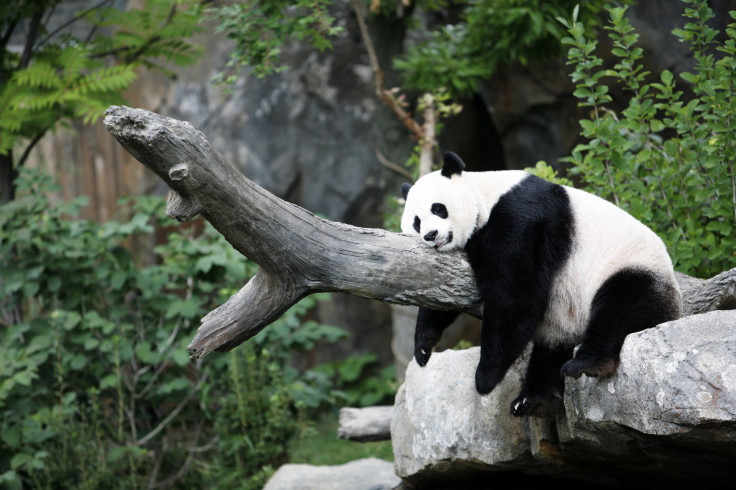National Zoo Giant Panda Mei Xing Pregnant? Final Phase Of Reproductive Cycle Begins

A giant panda at the National Zoo began the final phase Monday of her reproductive cycle, which will reveal whether she will eventually give birth to a cub or if it's a false pregnancy. While the Washington, D.C., zoo did not know if Mei Xing, the adult female giant panda, was pregnant after undergoing several ultrasound rounds earlier this summer, a spike in hormones suggests her reproductive cycle will soon conclude.
Smithsonian Conservation Biology Institute scientists confirmed a rise in Mei Xiang's urinary progesterone levels since July 20, according to a news release Monday, suggesting that she would either have a cub or experience the end of a pseudopregnancy within 30 to 50 days, reported the Georgetown Patch. Mei Xiang was artificially inseminated April 26 and April 27 with semen from both the zoo's male panda, Tian Tian, and from Hui Hui, a male panda in Wolong, China, that was determined to be a good genetic match.
Mei Xiang's hormones are rising! She'll have a cub or her pseudopregnancy will end in 30-50 days. #WeSaveSpecies pic.twitter.com/ppEEBtQv8b
— National Zoo (@NationalZoo) August 10, 2015Although the gestation period for a female giant panda ranges from three to six months, a female panda can have a fertilized egg that floats in her uterus for weeks before attaching to its wall and developing into a fetus, in what is called "delayed implantation," which makes it difficult for scientists to determine definitively whether a female is pregnant, according to the Washington Post. The hormones and behavior of pandas also remain the same regardless of pregnancy, leading to a "pseudopregnancy."
Mei Xiang is the mother of the popular panda cub Bao Bao, which was born in 2013. Roughly 1,800 pandas are left in the wild, according to the World Wildlife Fund for Nature, in part because giant panda births remain rare, with female pandas ovulating only once a year, reducing the possibility of a successfully conceiving a cub.
Expecting? National Zoo's Giant Panda Could Be Pregnant: Is she, or isn't she? Officials at the National Zoo i... http://t.co/rMDvu6KrC4
— notivagos (@notivagos) August 10, 2015Mei Xiang has begun building a nest and spending more time in her den, the zoo said, reported the Washington Post. Panda experts planned to conduct more ultrasound scans on Mei Xiang later this summer to see if she will deliver another cub.
© Copyright IBTimes 2024. All rights reserved.





















